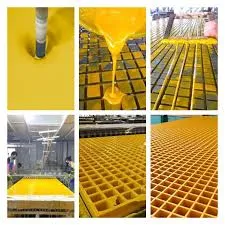
-
 Afrikaans
Afrikaans -
 Albanian
Albanian -
 Amharic
Amharic -
 Arabic
Arabic -
 Armenian
Armenian -
 Azerbaijani
Azerbaijani -
 Basque
Basque -
 Belarusian
Belarusian -
 Bengali
Bengali -
 Bosnian
Bosnian -
 Bulgarian
Bulgarian -
 Catalan
Catalan -
 Cebuano
Cebuano -
 China
China -
 China (Taiwan)
China (Taiwan) -
 Corsican
Corsican -
 Croatian
Croatian -
 Czech
Czech -
 Danish
Danish -
 Dutch
Dutch -
 English
English -
 Esperanto
Esperanto -
 Estonian
Estonian -
 Finnish
Finnish -
 French
French -
 Frisian
Frisian -
 Galician
Galician -
 Georgian
Georgian -
 German
German -
 Greek
Greek -
 Gujarati
Gujarati -
 Haitian Creole
Haitian Creole -
 hausa
hausa -
 hawaiian
hawaiian -
 Hebrew
Hebrew -
 Hindi
Hindi -
 Miao
Miao -
 Hungarian
Hungarian -
 Icelandic
Icelandic -
 igbo
igbo -
 Indonesian
Indonesian -
 irish
irish -
 Italian
Italian -
 Japanese
Japanese -
 Javanese
Javanese -
 Kannada
Kannada -
 kazakh
kazakh -
 Khmer
Khmer -
 Rwandese
Rwandese -
 Korean
Korean -
 Kurdish
Kurdish -
 Kyrgyz
Kyrgyz -
 Lao
Lao -
 Latin
Latin -
 Latvian
Latvian -
 Lithuanian
Lithuanian -
 Luxembourgish
Luxembourgish -
 Macedonian
Macedonian -
 Malgashi
Malgashi -
 Malay
Malay -
 Malayalam
Malayalam -
 Maltese
Maltese -
 Maori
Maori -
 Marathi
Marathi -
 Mongolian
Mongolian -
 Myanmar
Myanmar -
 Nepali
Nepali -
 Norwegian
Norwegian -
 Norwegian
Norwegian -
 Occitan
Occitan -
 Pashto
Pashto -
 Persian
Persian -
 Polish
Polish -
 Portuguese
Portuguese -
 Punjabi
Punjabi -
 Romanian
Romanian -
 Russian
Russian -
 Samoan
Samoan -
 Scottish Gaelic
Scottish Gaelic -
 Serbian
Serbian -
 Sesotho
Sesotho -
 Shona
Shona -
 Sindhi
Sindhi -
 Sinhala
Sinhala -
 Slovak
Slovak -
 Slovenian
Slovenian -
 Somali
Somali -
 Spanish
Spanish -
 Sundanese
Sundanese -
 Swahili
Swahili -
 Swedish
Swedish -
 Tagalog
Tagalog -
 Tajik
Tajik -
 Tamil
Tamil -
 Tatar
Tatar -
 Telugu
Telugu -
 Thai
Thai -
 Turkish
Turkish -
 Turkmen
Turkmen -
 Ukrainian
Ukrainian -
 Urdu
Urdu -
 Uighur
Uighur -
 Uzbek
Uzbek -
 Vietnamese
Vietnamese -
 Welsh
Welsh -
 Bantu
Bantu -
 Yiddish
Yiddish -
 Yoruba
Yoruba -
 Zulu
Zulu
fiberglass scrubber
The Role of Fiberglass Scrubbers in Industrial Air Quality Management
In modern industrial operations, maintaining air quality is not just a regulatory requirement but a crucial aspect of protecting the environment and human health. One effective solution that has gained traction in recent years is the fiberglass scrubber. These advanced devices play a pivotal role in controlling and reducing airborne pollutants, ensuring that industries adhere to environmental standards while promoting safer working conditions.
Fiberglass scrubbers are designed to remove contaminants from industrial exhaust streams. They are particularly effective at removing particulates and gaseous pollutants, such as volatile organic compounds (VOCs), sulfur dioxide (SO2), and hydrogen sulfide (H2S). These pollutants can originate from various industrial processes including chemical manufacturing, oil refineries, and waste treatment facilities. By employing a scrubber system, companies can significantly decrease the levels of these harmful substances before they are released into the atmosphere.
One of the primary advantages of fiberglass scrubbers is their robustness and corrosion resistance. Constructed from fiberglass-reinforced plastic (FRP), these scrubbers can withstand harsh chemical environments without degrading over time. This makes them particularly suitable for industries that deal with corrosive gases or aggressive chemicals. In addition to their durability, fiberglass scrubbers are lightweight and easier to install compared to traditional metal scrubbing systems, making them a cost-effective choice for many operations.
The operational principle of fiberglass scrubbers involves a process known as absorption, wherein the contaminated air is passed through a scrubbing liquid
. This liquid is typically a mixture of water and chemical agents that target specific pollutants. Through contact with the scrubbing liquid, the pollutants are absorbed, neutralized, or physically captured, thus cleansing the air before it is emitted. Furthermore, these systems can be designed as either open or closed-loop systems, depending on the specific requirements of the application.fiberglass scrubber

Efficiency is a critical factor in the performance of any air pollution control device, and fiberglass scrubbers are highly effective in meeting these demands. They can achieve high removal efficiencies, often exceeding 90% for certain gases and vapors. This makes them an ideal choice for facilities looking to reduce their environmental footprint and comply with strict emission regulations. Additionally, advancements in technology have led to the development of regenerative scrubbers that allow for the recycling of scrubbing liquids, further enhancing environmental sustainability.
Another essential aspect to consider is the maintenance of fiberglass scrubbers. While they are generally low-maintenance due to their durable construction, regular inspections and occasional cleaning are vital. Monitoring the performance of the scrubbing liquid and making adjustments as needed helps maintain optimal efficiency and prolong the lifespan of the system. This proactive approach ensures continued compliance with environmental regulations and helps prevent operational disruptions.
Despite their many benefits, it is essential for industries to conduct a thorough assessment before selecting a scrubber system. Factors such as the type and concentration of pollutants, the required removal efficiency, and space constraints must be taken into account. Consulting with environmental engineers or air quality specialists can lead to the selection of the most suitable scrubber technology tailored to specific operational needs.
In conclusion, fiberglass scrubbers play a crucial role in enhancing air quality in various industrial applications. Their efficient pollutant removal capabilities, coupled with their corrosion resistance and ease of installation, make them a valuable asset in modern environmental management. As industries continue to prioritize sustainability and regulatory compliance, fiberglass scrubbers will undoubtedly remain a key component in the toolkit of air pollution control strategies, ultimately contributing to cleaner air and a healthier planet for future generations.









